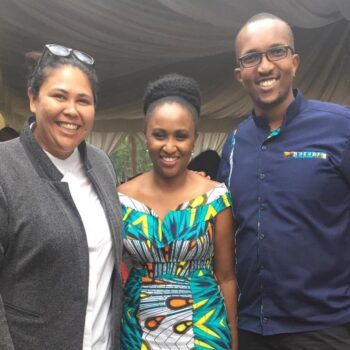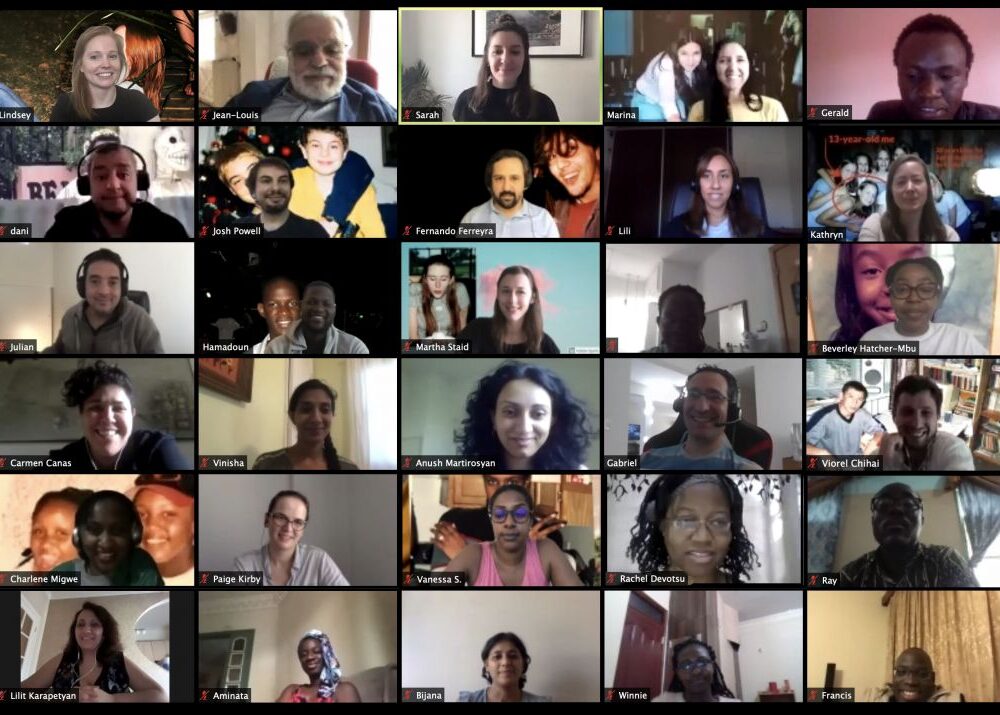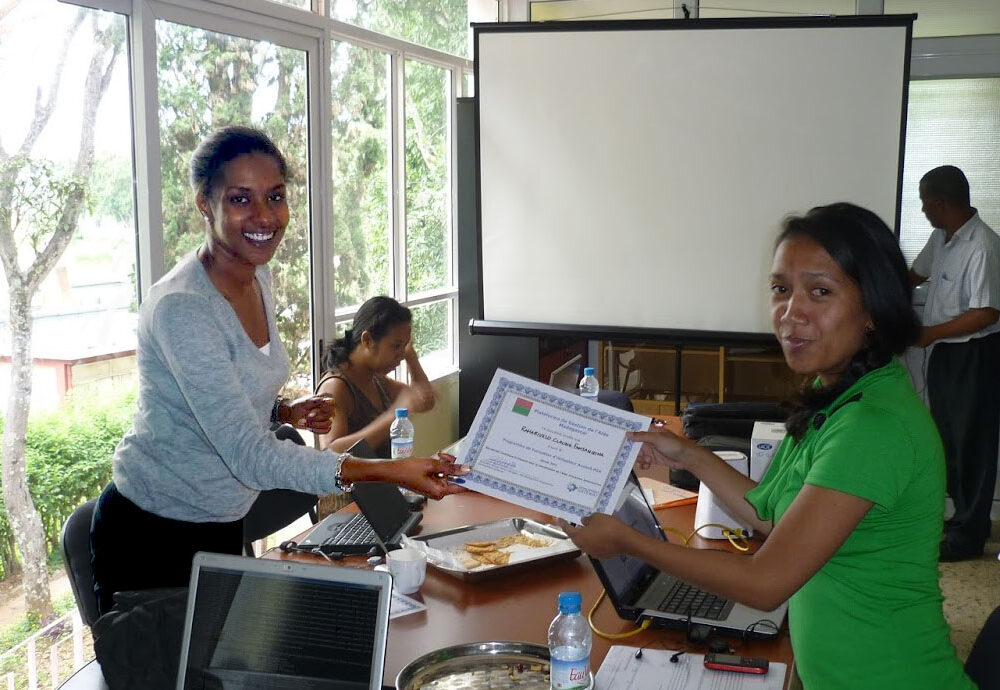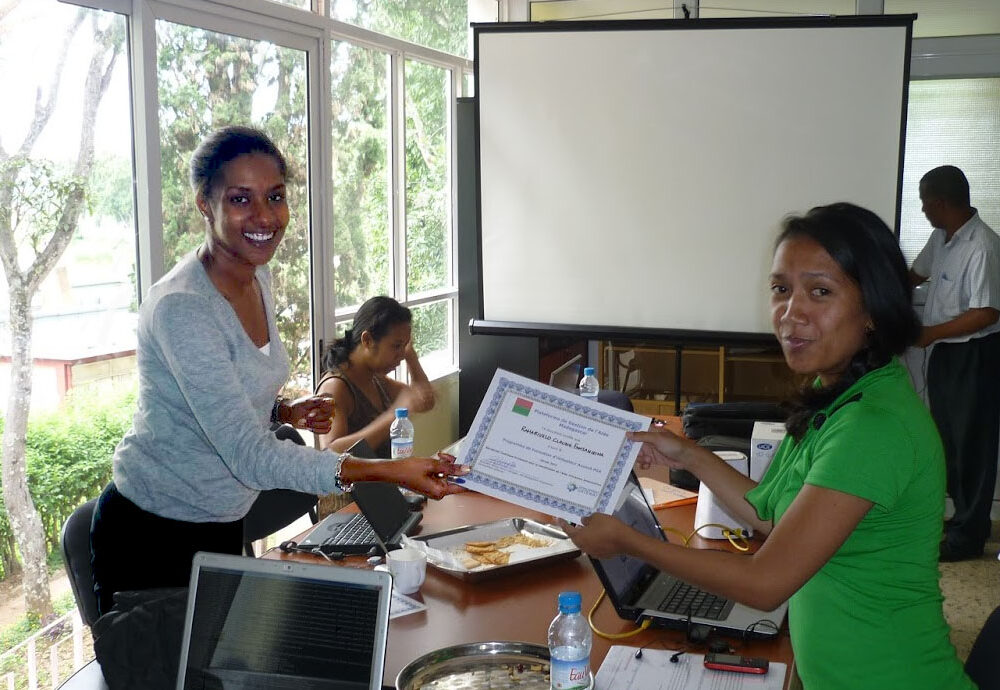Who Are We Now?
Charlene Migwe-Kagume is a Senior Consultant based in Nairobi. She works in Kenya on Open Contracting and Fertilizer data. Charlene has been with DG since 2018. In this post, Charlene gives an overview of DG’s current work and priorities.
DG’s Ownership Priority

When I joined DG in 2018, I instantly knew I had joined a group of young and vibrant individuals. What struck me the most was the willingness of everyone at DG to learn and quickly adapt to improve. As we celebrate our 20th anniversary, we look back at our data approaches guided by lessons learned over the years in understanding the most suitable solutions for different geographies, use cases, and engagements. In particular, our proactive experience in both technical and policy implementation guides us in delivering tailored and viable data solutions.
Out of the many positive elements of DG’s approach, I will focus on ownership, which in my opinion, is by far the most valuable aspect of all our projects. Simply because if ownership is not established at the beginning of a project, well-built data tools will be left lying idle – not used to inform decision-making and policy. Establishing ownership of any data initiative comes with keeping in mind certain complex factors. Time and thought need to be taken to understand the stakeholders and their needs.
Our Agile Approach to Meeting Stakeholder Needs
In our experience, stakeholders may change, and their needs may also change throughout the project. In particular, when working with the government, priorities are often determined by changes in society, political landscapes, or other external factors. For example, some priorities of both national and sub-national governments will need to align with national strategies, which are constantly evolving. At DG, we apply an agile approach to implementation that has proven effective in ensuring the data initiative adapts to the ever-changing needs of government institutions.
Incentives and Policies for Ownership
However, an agile approach needs to be complemented with incentives and clearly defined policies that establish the use and institutionalization of data initiatives. A number of data initiatives will require some form of commitment from the government, which often are slow to organizational change, and may have some personnel who lack the motivation to adopt new initiatives. Adding value to the target institution is not always sufficient in ensuring the long-term adoption and use of data initiatives. Over the years, we have learned that integrating data use strategies and policies establish necessary guidelines for the long-term use of data initiatives, and we have learned how to embed this practice in the institution’s processes. Finally, strategic stakeholder engagement in the adoption of data use strategies and policy must be done.
In 2018, DG, in partnership with HIVOS, supported the Government of Makueni County in Kenya to ensure the use of open contracting data in improving procurement processes. Ownership was a key priority because the County government’s objective was to institutionalize its commitment to open contracting, and to ensure all departments use the data to improve the county’s procurement process and reduce corruption. In 2018, an MoU established between HIVOS, DG, and Makueni County that assigned each party activities aimed at ensuring the use of open contracting data in improving procurement processes. Some of the activities include handover training, developing a data management plan to ensure timely data is published, and the establishment of an open contracting policy to guide all departments.
Looking Ahead
Over the last twenty years, DG’s work has been pioneering and has had a significant impact in shaping data and policy conversations. Started in the World Bank, DG has morphed into a global organization with location-based personnel across the world. Based in Nairobi, I have seen the impact of this in ensuring context-aware and flexible decisions in all our implementation work. Be it aid management, open contracting, agriculture, or health, we collect and document learning through our in-country assessments that give us institutional, sub-national, and national contexts. The Visualizing Insights on Fertilizer for African Agriculture (VIFAA) initiative – supported by the Bill & Melinda Gates Foundation – is a great example, with a team from Kenya, Armenia, Romania, Argentina, US, Nigeria, and Ghana.
At DG, we harness the knowledge from our global teams to improve the implementation of our projects, and looking ahead, there are opportunities to share our learning externally as well. We look forward to translating our learning into global contributions, continuing to shape our data work and policy positioning.
Share
Related Posts

Turning 20 in 2020…
As we look forward to DG’s next decade, which coincides with the end of the 2030 SDG era, the tumult of the present, together with our core identity and skills, point us to several opportunities to contribute to a more hopeful future. We are looking forward to working with our partners in making DG’s 3rd decade our most ambitious and successful one yet.

20 ans de leçons apprises
DG a été façonné par 20 ans de leçons apprises à travers les évaluations, les mises en œuvre et les mesures d’atténuation pour faire face aux défis. Ces leçons ont contribué à faire évoluer notre approche, à influencer notre perspective stratégique et à soutenir l’innovation continue.

20 Years of Lessons Learned
DG has been shaped by 20 years of lessons learned through assessments, implementations, and challenges. These lessons have helped to evolve our approach, influenced our policy perspective, and supported continuous growth & innovation.